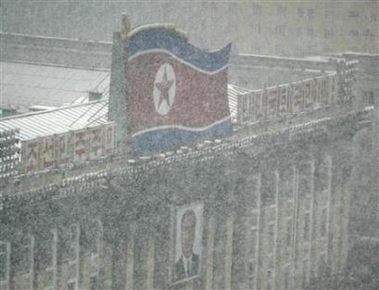US official sees no concession on NKorea assets
(Reuters)Updated: 2006-12-20 11:04
WASHINGTON - The United States is prepared for serious discussion on the financial assets dispute with North Korea but will not make concessions just to encourage success in six-party talks on Pyongyang's nuclear program, a senior US official said on Tuesday.
|
|
"For there to be progress on these (financial) issues, this will have to be met with the same seriousness of purpose on the other (North Korean) side" as the United States is bringing to the discussions, the official said in an interview with Reuters.
"It can't be viewed as some game where people think we're just going to make some sort of concession -- I'm not even sure what the concession would be, how one would even describe it -- just to get somewhere in some other negotiation," he added.
US pressure led the government of Macau last year to take over the Banco Delta Asia on its territory.
US officials said the bank, now in receivership, failed to exercise "due diligence" by handling accounts linked to Pyongyang's drug trafficking, money-laundering and US dollar counterfeiting activities.
North Korea cited the US-led financial crackdown as a reason for its year-long boycott of six-country negotiations aimed at persuading the country to give up its nuclear weapons programs.
SWEEPING DEMANDS
Washington's recent decision to set up a separate US-North Korea working group to address the financial assets issue helped encourage Pyongyang's return to the six-party talks, which resumed in Beijing on Monday.
North Korea opened the talks by asserting sweeping demands in return for scrapping its nuclear arsenal, starting with the lifting of US financial curbs and UN sanctions.
But the senior US official said: "They've earned this terrible reputation, and the US government can't wave a magic wand and give them a good reputation."
His comments seemed to suggest a harder line, after Secretary of State Condoleezza Rice appeared to hint at flexibility in an interview with Reuters on Friday.
"We're not going to allow them (North Koreans) to violate our laws, but obviously we'll look at the totality of all of this and see where we are after the next couple of rounds" of talks, Rice said.
Although US officials have low expectations for progress, particularly on financial assets, the senior official who spoke anonymously said the Bush administration was making a serious effort to engage Pyongyang.
One important measure of that was the fact that the head of the US delegation handling the financial issues is Daniel Glaser, a Treasury Department deputy assistant secretary and internationally recognized expert on terrorist financing and financial crimes, the official said.
"We've put a lot of effort into analyzing the (financial) issue and approaching it in a constructive way and a serious way," he said, without providing details.
Some experts have argued that the United States could show progress on the financial issues by agreeing to support an unfreezing of North Korean Banco Delta Asia accounts that relate to legitimate pursuits, like cigarette production.
But US officials say the accounts are impossible to disentangle, partly because Pyongyang's entire economy is driven by criminal activity and hence all accounts are somehow tainted.
|
||
|
||
|
|

